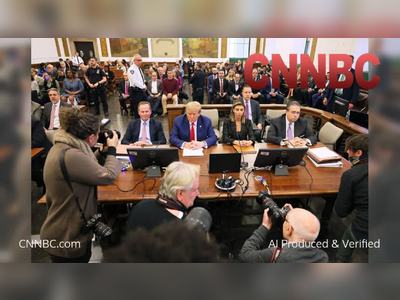Asia Moves Fast on Stablecoin Policy as U.S. Enacts First Federal Framework
Japan’s central bank regulator readies approval of yen-pegged token this autumn, China weighs yuan-backed stablecoin in policy shift, while U.S. formalises stablecoin rules under new law.
Japan’s financial regulator is set to approve the nation’s first yen-pegged stablecoin this autumn.
The token, to be issued by fintech firm JPYC, will be backed one-to-one with the yen and held in highly liquid assets such as bank deposits and government bonds.
This follows a revision to national law in mid-2023 that formally recognised stablecoins and permitted regulated institutions like banks and money transfer firms to issue them .
In a major policy reversal, China is considering authorising yuan-backed stablecoins for the first time.
The State Council is expected to review a roadmap this month that would outline offshore issuance, assigning roles to domestic regulators and setting risk-management protocols.
Initial use may be focused on trade and payment systems in Hong Kong and Shanghai .
In the United States, President Donald Trump signed the GENIUS Act into law on July eighteenth, marking the country’s first federal regulatory framework for stablecoins.
The legislation sets standards for issuance, reserve backing, and compliance with anti-money-laundering measures.
Dollar-pegged tokens are now required to hold highly liquid reserves and undergo regular disclosure .
These developments reflect a global acceleration in regulation of stable digital currencies across Asia and North America, with major economies moving to establish oversight and entry paths for local-currency-pegged tokens.
The token, to be issued by fintech firm JPYC, will be backed one-to-one with the yen and held in highly liquid assets such as bank deposits and government bonds.
This follows a revision to national law in mid-2023 that formally recognised stablecoins and permitted regulated institutions like banks and money transfer firms to issue them .
In a major policy reversal, China is considering authorising yuan-backed stablecoins for the first time.
The State Council is expected to review a roadmap this month that would outline offshore issuance, assigning roles to domestic regulators and setting risk-management protocols.
Initial use may be focused on trade and payment systems in Hong Kong and Shanghai .
In the United States, President Donald Trump signed the GENIUS Act into law on July eighteenth, marking the country’s first federal regulatory framework for stablecoins.
The legislation sets standards for issuance, reserve backing, and compliance with anti-money-laundering measures.
Dollar-pegged tokens are now required to hold highly liquid reserves and undergo regular disclosure .
These developments reflect a global acceleration in regulation of stable digital currencies across Asia and North America, with major economies moving to establish oversight and entry paths for local-currency-pegged tokens.










